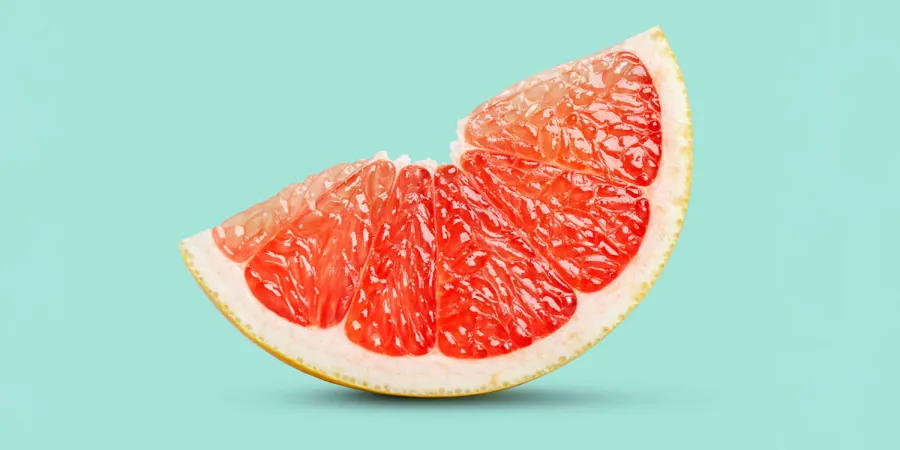
9 Surprising High-Protein Fruits That Boost Muscle and Aid Weight Loss
2025-01-16
Author: Chun
Introduction
When it comes to enhancing your diet for muscle growth and weight loss, fruits may not immediately spring to mind. However, don’t underestimate the potential benefits of these vibrant, delicious foods! While they might not compete with beans or nuts in terms of protein content, several fruits pack a protein punch along with a treasure trove of health benefits from fiber, vitamins, and antioxidants.
Protein plays a critical role in promoting satiety, repairing tissues, and supporting muscle growth. With the increasing popularity of high-protein diets for weight loss, a balanced intake can be essential. Moreover, plant-based diets are gaining popularity for their contribution to health and weight management.
According to registered dietitian Natalie Rizzo, while fruits are naturally lower in protein compared to other sources, every gram counts—especially if you’re looking to increase your plant-based food intake. Most adults require a minimum of 20 grams of protein per meal, and incorporating fruits with some protein content can support that goal.
Additionally, the sugars found in fruits are a healthy source of energy for daily activities and workouts. Besides protein, fruits are abundant in essential nutrients such as vitamins A, C, E, D, potassium, magnesium, and dietary fiber. However, Rizzo cautions that the protein in fruits should be considered an added bonus rather than a primary protein source.
High-Protein Fruits
To help you meet your protein goals more deliciously, here are nine fruits with 1 gram or more of protein per serving, perfect for rounding out your meals:
1. Passion Fruit
- Protein: 5 grams per cup - Rich in fiber and vitamins, this exotic fruit features a jelly-like pulp that can be enjoyed fresh, as a yogurt topper, or blended into drinks.
2. Jackfruit
- Protein: 2.8 grams per cup (sliced) - Known for its pulled-pork-like texture when unripe, jackfruit is a fantastic meat alternative that can be barbecued, sautéed, or used in stews.
3. Pomegranate
- Protein: 2.9 grams per cup of seeds - These ruby-red arils are bursting with antioxidants and provide health benefits that support heart health due to their high levels of anti-inflammatory fatty acids.
4. Apricots
- Protein: 2.3 grams per cup (fresh), 4.4 grams per cup (dried) - Whether fresh or dried, apricots are nutrient-rich and have been linked to anti-inflammatory benefits, along with impressive vitamin content.
5. Blackberries
- Protein: 2 grams per cup - Their deep color indicates a wealth of nutrients and antioxidants known for reducing cancer risk and promoting gut health.
6. Guava
- Protein: 1.4 grams per fruit - This tropical delight is not only delicious but high in antioxidants and vitamin C, making it perfect for boosting immune health.
7. Raisins
- Protein: 1.4 grams per 1.5-ounce box - These small but mighty snacks are packed with fiber and nutrients that support heart health, making them a convenient addition to meals or snacks.
8. Citrus Fruits
- Protein: 1.2 grams (orange) to 2.3 grams (grapefruit) per fruit - Known for their high vitamin C content, these fruits are low in calories and hydrating, making them a refreshing addition to your diet.
9. Cantaloupe
- Protein: 1.3 grams per cup (cubed) - With a high vitamin A content that's crucial for eye health, cantaloupe adds sweetness and hydration to salads and smoothies.
Conclusion
Incorporating these fruits into your meals can provide a delightful boost in protein while also enriching your diet with essential nutrients and flavors. So, the next time you plan your meals, remember that fruits are not just for snacking—they can also enhance your protein intake and help you on your journey to a healthier lifestyle!

 Brasil (PT)
Brasil (PT)
 Canada (EN)
Canada (EN)
 Chile (ES)
Chile (ES)
 Česko (CS)
Česko (CS)
 대한민국 (KO)
대한민국 (KO)
 España (ES)
España (ES)
 France (FR)
France (FR)
 Hong Kong (EN)
Hong Kong (EN)
 Italia (IT)
Italia (IT)
 日本 (JA)
日本 (JA)
 Magyarország (HU)
Magyarország (HU)
 Norge (NO)
Norge (NO)
 Polska (PL)
Polska (PL)
 Schweiz (DE)
Schweiz (DE)
 Singapore (EN)
Singapore (EN)
 Sverige (SV)
Sverige (SV)
 Suomi (FI)
Suomi (FI)
 Türkiye (TR)
Türkiye (TR)
 الإمارات العربية المتحدة (AR)
الإمارات العربية المتحدة (AR)